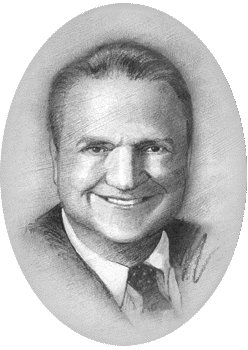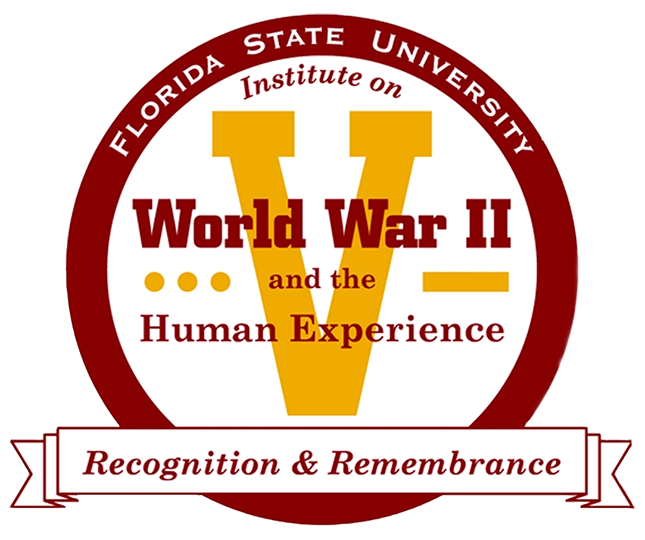TRAVEL GRANT OPPORTUNITY

The Thomas C. Cundy Fund for World War II Era Research
Travel Grant Program
Honoring the memory and lasting vision of Thomas C. Cundy, Sr., the Institute on World War II and the Human Experience, Department of History, Florida State University anticipates offering at least one $1000 travel grant for scholars and graduate students (ABD) to use the holdings of the Institute on World War II and the Human Experience in 2020-2021.
Applicants for this program should submit by May 30, 2020 a proposal of no more than five pages in the form of a letter, a current c.v., and the names and addresses of three references, all in a PDF document. Graduate student applicants should also submit a letter of recommendation from their Dissertation Advisor or the Director of Graduate Studies of their program. In the subject line, please include: CUNDY FUND APPLICATION-2020. Letters of recommendation for graduate student applicants should be sent directly to the Institute Director, Professor G. Kurt Piehler at kpiehler@fsu.edu by May 30, 2020.
Thomas C. Cundy Research Travel Grant Announcement (revised September 2019)
Past Recipients
2019 - Molly Dorsey - University of New Hampshire
Molly Dorsey is an associate professor of History and a core faculty member of Justice Studies at the University of New Hampshire. She earned her Ph.D. at Yale in History and a J.D. at Harvard. She has published a monograph titled A Strange and Formidable Weapon: British Responses to World War I Poison Gas, as Marion Girard. She also co-edited a book, Health and Freedom in the Balance, with Rosemary Caron regarding the tensions between individual liberty, public health, and governmental authority.
Currently she is engaged in two book-length projects, both of which were supported by a Cundy Travel Grant in January of 2019. The main purpose of her visit to the Institute on World War II and the Human Experience was to conduct research on the integration of civilian professionals (namely nurses, doctors, chaplains, and lawyers) into the American military from the Civil War to the present. She is studying how the incorporation of these groups shaped the Army, and how the Army influenced these groups. For example, the involvement of civilian nurses in the Spanish-American War led directly to their permanent role in the Army, while the Uniform Code of Military Justice is shaped by civilian lawyers’ assessments. Conducting research at the Institute allowed her to focus on World War II experiences, a turning point because of the expansion of the military in almost every way during that conflict. The benefit of reading oral interview transcripts, letters, diaries, and even a trial investigation fleshed out the story gathered from bureaucratic, official records. In particular, collections such as that of Clelia Pez Powell, whose entrance into the Army as a nurse came through the auspices of the Red Cross, proved valuable. Powell’s story highlights the dependence of the Army on a civilian volunteer organization to meet its staffing needs as well as the Army’s treatment of such nurses as second-class citizens, at least in Powell’s case. Ivory Betram’s accounts speaks to the integration of novel science, namely penicillin, and her own experiences as an African-American in uniform. Thaddeus M. Mosseley’s experiences also highlights the shortage of health care providers during World War II. Trained in a civilian medical school, this physician interrupted his residency to serve in the Medical Corps, gaining experience and treating soldiers. His surgical record illustrates his work and education, in addition to offering an eye-witness view of the military’s organization of specialists after D-Day. In contrast, the experiences of William Chaddock, convicted of attempting to murder another soldier, detail the intersection of the legal and civilian judicial systems.
In addition, while in Florida, Dorsey had the opportunity to search the Institute’s records for some personal narratives about chemical warfare and World War II. The other book-length project she is writing focuses on the influence chemical weapons (and fear of them) had on the Allied behavior and actions during World War II, including efforts to deter themselves and others from using gas on the battlefield. To tell this story, it is critical to provide a foundation in which she demonstrates that there was a conviction that gas would be used and that belligerents had to be prepared to retaliate with it as well as defend against it. Accounts of work in a mustard gas factory in the Huntsville Arsenal in the Lois Moore collection at the Institute support this goal as do the photos of Zelma Aberbanel in a gas mask, showing that even an office worker at a base in the continental United States thought of gas threats. In addition, having the opportunity to share some of her work on chemical warfare at a public lecture titled “A Weapon of Last Resort: World War II and Chemical Warfare” while at Florida State led to useful discussions.
With the assistance of the Cundy Travel Grant, Dorsey accessed nearly two dozen collections at the Institute for her work. She plans to incorporate the material into her writing during her sabbatical in the Fall of 2019, and has already integrated some of the Institute research in a public lecture in New Hampshire in April. Since the Cundy Travel Grant award, she has been the recipient of a University of New Hampshire College of Liberal Arts Faculty Research Summer Stipend and been named the incoming Lamberton Professor of Justice Studies at the University of New Hampshire, both of which will provide additional research support for her projects and accelerate their completion.
2018 - Michele Curran Cornell - Kent State University
Michele Curran Cornell earned her Ph.D. in History from Kent State University in 2018. She is a historian of Modern American history specializing in Gender and Women’s History, War & Society, and Popular Culture. She is currently in the process of revising her dissertation–Romanticizing Patriarchy: Patriotic Romance and American Military Marriages During World War II–into a book manuscript. Using gender analysis, Michele’s manuscript employs cultural and social history methodologies to explore how the war triggered the highest ever recorded marriage rates to that point in U.S. history. She argues that during the war, films, magazines, servicemen, and American women, romanticized patriarchy by idealizing normative gender roles and downplaying patriarchal power dynamics in marriage. Through this process marriage promised to unite men and women for the war effort, harness sexuality through marital monogamy, and preserve husbandly authority and female subordination even as wartime challenged normative gender roles. In other words, the World War II concept of romantic patriarchy preserved the power and privileges of white men during the war and into the postwar era, which provided the foundation for the mythical family ideal of the 1950s.
As the 2017 winner of the Thomas C. Cundy Travel Grant for World War II Era Research, Michele’s work utilizes many of the Institute’s letter collections exchanged between servicemen and their wives during the war. Most notably, Romanticizing Patriarchy makes use of the Lester Weiss Collection, the Donald and Portia Ackerman Collection, Josie Kinsey Rand Lettters, Wilson Averre Koontz Collection, and The Collection of Clark Brandt. Rich with information, these collections feature thousands of letters, oral histories, diaries, personal memoirs, photographs, greeting cards, newspaper clippings and more. Together, these sources help piece together the experiences, emotions, and future plans of World War II newlyweds, which exemplify how romantic patriarchy influenced a generation of Americans.
Featuring her dissertation work, Michele’s paper “The Problem with Wolves: American Servicemen’s Sexual Entitlement during World War II,” won the Most Outstanding Graduate Paper Award at the Akron-Kent Symposium (2018–Akron, OH). In addition to the Cundy Grant, Michele also won the Mr. and Mrs. Matthew B. Ridgway Military History Research Grant from the U.S. Army Military History Institute in Carlisle, Pennsylvania (2014). She has previously presented her dissertation work at conferences including: Film and History (2017–Milwaukee, WI); Comparative Home Fronts: World War II (2016–FSU’s Institute on WWII); Gender, War and Memory in the Anglo-American World (2015–University of Mississippi); and the Society for Military History (2015–Montgomery, AL). Prior to her dissertation work, Michele published anthology chapters on early twentieth century perceptions of college women in the Ladies’ Home Journal (LHJ), job advertisements in the LHJ (1890-1920), and masculinity and manhood in the Civilian Conservation Corps, along with numerous book reviews in various scholarly journals.
2017 - Anna Marie Anderson - University of Houston
Anna Marie Anderson is a Ph.D. candidate at the University of Houston. Her work merges five subfields: war and society, civil rights, social, cultural, and political history by examining the underexplored experiences of African American and Jewish American prisoners of war. Anna Marie contends that combining the study of prisoners of war with race and ethnicity provides a new perspective on the hypocrisy of U.S. war aims, while demonstrating the interconnectedness of domestic social problems with the military experience. She interrogates the disconnect between discourse on civil rights and the failure to apply these ideals in military policy. As prisoners of war, African Americans and Jewish Americans experienced a shift in racial attitudes. While African Americans faced racism from fellow prisoners of war, the camp guards did not follow the mores of Jim Crow racism and often treated African American airmen the same as imprisoned white airmen. In contrast, Jewish Americans were usually treated as equals by other prisoners of war, but could face an egregious level of anti-Semitism from German guards. To get at this disconnect Anna Marie use the voices of the prisoners of war to follow their lives as civilians, enlisted men, prisoners of war, and their return to the United States.
Anna Marie was the inaugural recipient of the Thomas C. Cundy Travel Grant for World War II Era Research in 2016. Her dissertation makes use of several of the Institute’s collections including the Tom Brokaw Collection, David Westheimer Collection, Harold Speck Collection, Sidney Rochelston Collection, Glenn Maddy Collection, John Sherrill Collection, Loren Fink Collection, and Joseph Cittiadini Collection. The Loren Fink Collection is especially useful to her work as it contains an extensive collection of letters to and from Loren and his future wife, including during his time as a prisoner of war in Germany. The Harold Speck Collection includes a rare YMCA POW diary, which provides information on living condition, food rations, recipes, and other musings from Speck’s time as a prisoner of war. The collections frame Anna Marie’s dissertation, providing primary sources on the life of servicemen before, during, and after World War II.
Anna Marie’s dissertation, “Brothers in Arms? Racism and Anti-Semitism in the Prisoner of War Camps of World War II Europe,” will be completed in August 2018. She is a recipient of the Andersonville National Historic Sit Prisoner of War Research Grant (2016) and Truman Library Institute Research Grant (2015). She has presented her dissertation research several conferences including: Lessons and Legacies Conference (2018, St. Louis, MO); Jewish Studies Conference (2017, Washington, D.C.); Society for Military History Conference (2017, Jacksonville, FL); and Northern Great Plains History Conference (2015, Bismarck, ND).


